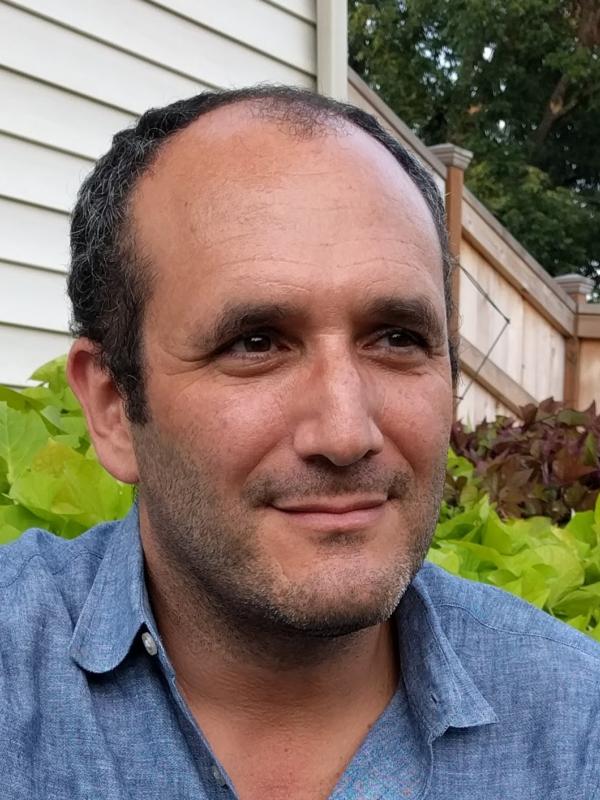
Oscar Harari
Assistant Professor, Neurology
He/Him
734 Faculty Office Tower
395 W. 12th Ave., Columbus,
OH 43210
Areas of Expertise
- Molecular and Celular Neuroscience
- Cognitive and Computational Neuroscience/Imaging
- Developmental Neuroscience and Genetics
Our research bridges the areas of data science, bioinformatics, and human genomics. We use complex high-dimensional omics human data to study neurodegeneration and improve our understanding of the underlying biology of complex diseases.
Research approaches:
- Functional genomics: We study postmortem human brain, and experimental models to provide a better understanding of the functional mechanisms that coding and non-coding variants associated with Alzheimer’s Disease (AD), related dementias and related phenotypes mediate risk. We are focused on the study of the impact of the neurovascular unit in AD, the study of Autosomal Dominant forms of AD (mutations in APP, PSEN1 and PSEN2) and sex differences in AD. This includes the elucidation of cell-types, functional variants, genes, and pathways involved in the disease etiology or progression. (PMID: 37085492, 36798226, 28943286)
- AD molecular heterogeneity: AD cases exhibit neuropathological heterogeneity, which is also shown at the molecular level. Our work aims to identify AD molecular subtypes, that are biologically relevant and associated with alternative disease outcome (e.g. disease progression rate, worse cognitive outcomes, sex, genetic risk, and other) (PMID: 38687811, 29880032)
- Single-cell omics and spatial transcriptomics: We use this approaches to study what are the pathways, and transcriptomics profiles altered in different cortical regions in the context of AD neuropath hallmarks (PMID: 33911285, 37315555)
-System biology: We leverage mathematical, and computational approaches to infer gene networks, regulatory mechanisms and cell-to-cell communication (mediated by ligands and receptors) that are dysregulated in neurodegeneration. (PMID: 38699303, 36368315 }
-Mining into large omic repositiories: We have pioneered machine-learning approaches to interrogate brain transcriptomic, proteomics and metabolomics profiles that lead us to identify unique molecular changes to carriers of specific genetic variants and mutation that are associated with disease. (PMID: 31456032, 36251323).
Training philosophy: I have served on several graduate committees and mentored multiple graduate students. I have also provided mentorship and guidance to postdocs and junior faculty, some of them been awarded by NIH K developmental projects (K99 and K25). Much of my work is based on fluent collaborations with colleagues with complementary expertise, which allows a multipronged approach aimed at delivering a fast translation to the clinic. This requires frequent and periodic meetings to discuss work progress and coordinate action plans with researchers from other groups. I firmly believe that multidisciplinary effort provides extensive benefits to scientific endeavors but also in training, and thus have paired my mentees with other researchers who serve as co-mentors.
Our work has been generously funded by the National Institute on Aging (NIA R01AG057777, U01AG072464, R01AG074012, R56AG067764) the Archer Fund and the Chan Zuckerberg Initiative.
